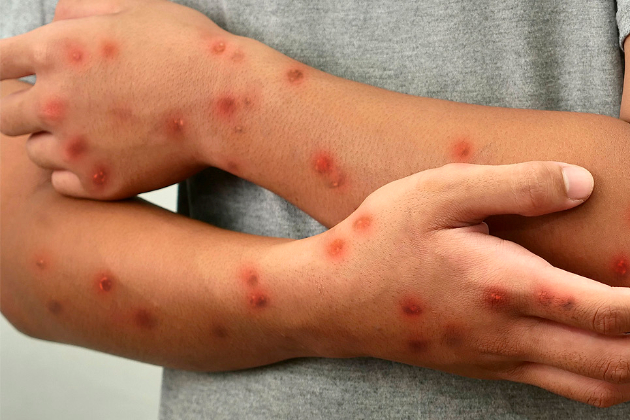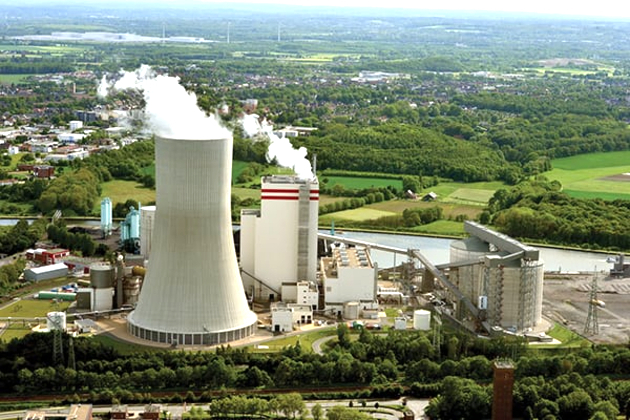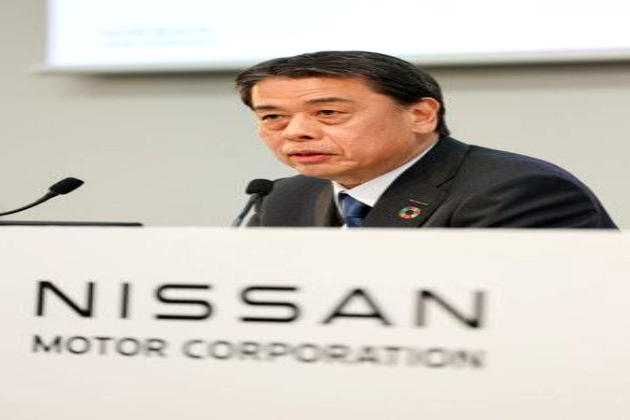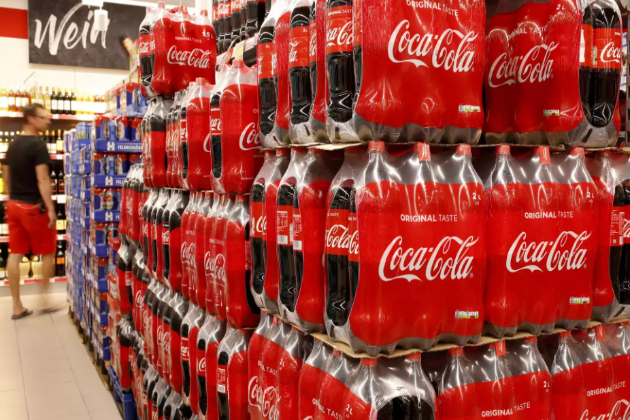WHO: Alcohol Labels Should Warn of Cancer Risk
Novinite.com
16 Feb 2025, 14:21 GMT+10
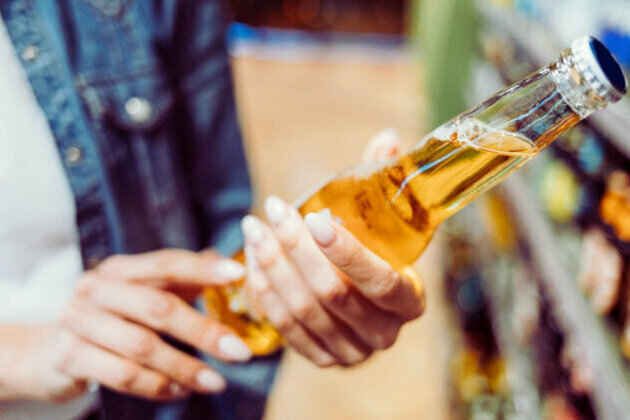
Prominent health warning labels on alcoholic beverages are essential for raising awareness that consuming alcohol can lead to cancer. This simple and inexpensive measure can empower consumers to make informed choices that can help reduce alcohol-related harms. A new report from WHO/Europe, ?Alcohol health warning labels: a public health perspective for Europe?, underscores the urgent need for mandatory, standardized labelling on alcoholic beverages.
Alcohol causes about 800 000 deaths annually in the WHO European Region, home to the heaviest drinkers in the world. Many countries of the Region have yet to make significant progress in implementing alcohol harm reduction policies. Despite cancer being the leading cause of alcohol-attributable deaths in the European Union (EU), public awareness of the link between alcohol and cancer remains alarmingly low.
Our right to know: closing the information gap
A WHO/Europe study featured in the report, conducted across 14 European Region countries, revealed a striking gap in awareness: only 15% of respondents knew that alcohol causes breast cancer, and just 39% were aware of its link to colon cancer. These cancers account for the highest proportion of alcohol-related cancers in the EU among women (breast cancer) and men (colon cancer).
?Clear and prominent health warning labels on alcohol, which include a specific cancer warning are a cornerstone of the right to health, because they empower individuals with vital information to make informed choices about the harm alcoholic products can cause. Providing this information does not take anything away from consumers, on the contrary, it arms them with knowledge, and knowledge is power,? says Dr Hans Henri P. Kluge, WHO Regional Director for Europe.
Alcohol health warning labels are currently implemented in only 3 out of 27 EU countries and only 13 out of the 53 WHO European Region Member States, leaving consumers unaware of the risks they face.
Key findings and policy recommendations
Mandatory labelling.The impact of health warnings depends on design, content and placement on the labels. Countries should mandate health warning labels on alcohol products rather than rely on self-regulation of alcohol producers, as these may opt for inconspicuous placement and ambiguous messaging.
Prominent health warning labels.Alcohol products should display clear and prominent health warnings. These can be presented in text-only format or combined with pictograms to maximize reach and empower consumers with clear, accurate information to make informed choices about their health.
Cancer warnings. Research involving nearly 20 000 participants from 14 European Region countries found that cancer warnings on alcohol labels significantly boost awareness of alcohol's cancer risks. Labels featuring cancer warnings are more likely to spark conversations about alcohol risks and discourage consumption compared to other types of health messages.
Beyond QR codes.The alcohol industry generally supports the introduction of QR codes on products, allowing consumers to seek out further health information should they wish. However, a pilot study showed that only 0.26% of shoppers scanned QR codes for health information, underscoring the importance of visible, on-pack labels.
Beyond awareness: shaping norms, policies and culture
?Alcohol health warning labels are an important part of alcohol policy, serving multiple functions,? explains Dr Gauden Galea, Strategic Adviser to the Regional Director, Special Initiative on Noncommunicable Diseases and Innovation at WHO/Europe. ?They empower consumers to make informed decisions, raise awareness of alcohol-attributable health risks, can increase public support for alcohol policies, and reduce the overall appeal of alcohol products, ultimately influencing social norms around drinking. For younger generations especially, mandatory alcohol health warning labels could help shape healthier behaviours and attitudes towards alcohol.?
Data included in the report further shows wide support for the inclusion of strong alcohol-related harm warnings on product labels in the EU, with more than three quarters of respondents supporting it.
Health warning labels: a well-known and endorsed strategic action
Europe's Beating Cancer Plan sets the target of achieving a relative reduction of at least 10% in alcohol use by 2025, and one of the key activities in the Plan is the development of proposals for providing nutritional and health information on alcoholic beverages.
Similarly, both the Global Alcohol Action Plan 2022?2030 and the European Framework for Action on Alcohol 2022?2025, endorsed and adopted respectively by all WHO Member States, propose priority actions to address alcohol-related harms, which include development and implementation of labelling requirements for alcoholic beverages.
Building on existing evidence, Ireland has enacted a new law requiring cancer warning labels on alcohol-containing products starting in 2026, making Ireland the first country in the EU and the second country worldwide (after South Korea) to introduce cancer warnings on alcohol products.
Source:WHO Europe
 Share
Share
 Tweet
Tweet
 Share
Share
 Flip
Flip
 Email
Email
Watch latest videos
Subscribe and Follow
Get a daily dose of Africa Leader news through our daily email, its complimentary and keeps you fully up to date with world and business news as well.
News RELEASES
Publish news of your business, community or sports group, personnel appointments, major event and more by submitting a news release to Africa Leader.
More InformationInternational
SectionUS judge approves extradition of Turkish author and son for car crash
BOSTON, Massachusetts: A U.S. judge has ruled that a Turkish author and her son can be sent back to Turkey to face charges. The son...
New York confirms first case of new mpox strain
NEW YORK CITY, New York: The New York State Department of Health has confirmed its first case of a new mpox strain, increasing concerns...
NASA swaps astronaut capsule to speed up Starliner crew’s return
WASHINGTON, D.C.: NASA changed the astronaut capsule for its next routine flight to the International Space Station (ISS). This change...
Fort Bragg name restored as defense secretary reverses 2023 change
FAYETTEVILLE, North Carolina: U.S. Defense Secretary Pete Hegseth has changed the name of the Army base Fort Liberty back to its original...
US Navy ships sail through Taiwan Strait in first under Trump
BEIJING/TAIPEI: Two U.S. Navy ships navigated the Taiwan Strait this week, marking the first such operation since President Donald...
Trump bans paper straws, calls for plastic comeback
WASHINGTON, D.C.: President Donald Trump signed an executive order banning federal agencies from using paper straws, declaring they...
Business
SectionChina accelerates coal expansion, surpasses 100GW in 2024
BEIJING, China: China's coal power expansion surged in 2024, with nearly 100 gigawatts of new coal plant capacity breaking ground—the...
Nissan faces significant loss after scrapping Honda integration
TOKYO, Japan: Nissan is bracing for a steep financial loss as it scraps plans for a business integration with Honda, the company announced...
UK trader wins Supreme Court fight against US extradition
LONDON, U.K.: A UK-based securities trader accused of insider dealing in the United States has won his legal battle against extradition,...
Turkmenistan seals gas deal with Turkey via Iran, boosting energy ties
ASHGABAT, Turkmenistan: Turkmenistan has finalized an agreement to supply natural gas to Turkey through Iran, marking a significant...
Warner Bros & Jinjiang to bring Harry Potter Studio Tour to Shanghai
SHANGHAI, China: Warner Bros has partnered with Chinese hospitality giant Jinjiang International to develop a Harry Potter Studio Tour...
Coca-Cola reports 6% Q4 revenue surge, driven by global demand
ATLANTA, Georgia: Coca-Cola reported a six percent revenue increase in the fourth quarter, driven by strong global demand, innovative...


